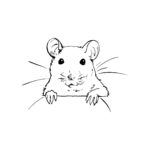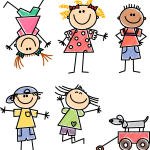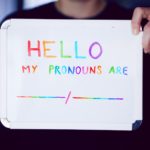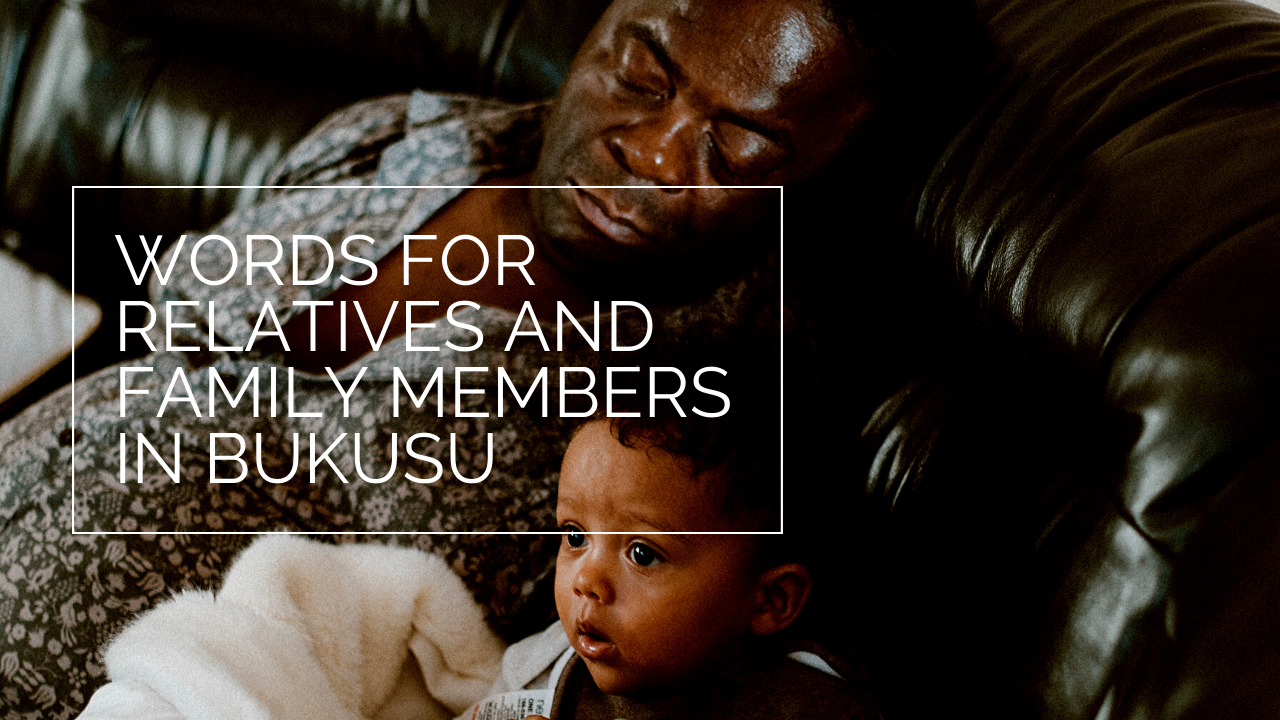In this article, we’re going to look at the kinship terms and family words needed to refer to relatives and family members in Bukusu language.
Post highlights
- Immediate relatives and family members.
- Extended relatives in Bukusu.
- In-law relatives and family members in Bukusu.
Bukusu language or Lubukusu is the tongue of Babukusu, the largest of the 18 houses of mulembe. Learn how to speak Bukusu language through our free lessons in Bukusu language; our stories on Bukusu culture that harness the richness of Lubukusu in their narrative; our continuous search for the meaning of different Bukusu proverbs and sayings; and if your Lubukusu is already good enough, sharpen and challenge yourself with our new blog sibukusu that covers everything Bukusu in the purest Lubukusu.
Get started with our mega post: 130+ common Bukusu words and phrases their meaning, translation and pronunciation.
Immediate relatives and family members in Bukusu
In this section, we’ll cover Lubukusu vocabulary to talk about your immediate family members in Bukusu language.
Your ancestral lineage
Ekholo.
Grandfather in Bukusu
Kuka
Grandmother in Bukusu
Kukhu
Father in Bukusu
Papa
Mother in Bukusu
Maayi
Wife in Bukusu
Omukhaye or Omukhasi
Husband in Bukusu
Omusecha or omukeni
Son in Bukusu
Omusani wa or okhwa
Daughter in Bukusu
Omukoko
Brother in Bukusu
Wandayo omusani
Sister in Bukusu
Wandaye omukoko
Refers to firstborns
Simakulu is how you refer to the eldest child in a family.
How to refer to your lastborn child in Bukusu
Mutuwa is how you refer to the youngest child in a family in Bukusu.
Your grandchild
Omwichukhulu
Your great grandchild
Sisoni
Great great grandson in Bukusu
Simila
Sibling
Wandayo.
One can emphasize the type of sibling they are referring to by adding extra words
- First, wandaye wa papa wa papa means paternal cousin;
- then, wandaye wa mayi wa mayi meaning maternal cousin;
- and, wandayase rura ndure meaning my sibling who follows me or the one I follow;
- while, wandayase we munda ndala means sibling born of the same womb;
- finally, wandayase we munju ekindi means my step sibling in Bukusu.
Article continues..
Learn Bukusu
- How to say ‘come and close the gate’ in Bukusu

- Meaning of nyanga ya mabasa in Bukusu

- The owl in Bukusu is Esikhikhi: A lick at curious associations and myths about the owl in Bukusu culture

- How do we say am amazed in Bukusu

- Names of 10 common rodents in Bukusu language

- How to say good morning in Bukusu

- Spice up your Bukusu: Meaning of enje chelechenje

- How to say I miss you in Bukusu language

- Common English pronouns in Bukusu language

How to refer to extended relatives and family members in Bukusu
In this section we deal with extended relatives. The relatives who occupy spheres outside this one — those who in English you’d refer to as distant relatives — either assume the kinship term that best fits them or are simply referred to as sichookhe. For example a distant relative from the maternal side could simply be referred to as kocha/ mayi or generally as sichookhe.
Maternal uncle in Bukusu
Khocha. On the other hand, ebukhocha is a general kinship term referring to the maternal side.
Paternal aunt in Bukusu
Elder/younger paternal uncle in Bukusu
Papa omutiti/omukhulu.
Elder/younger maternal aunt in Bukusu
Mayi omutiti/omukhulu.
Cousin
Siamang`ina.
Niece/nephews
Omwiwana is the term used by a male to refer to a niece/nephew born of your sisters.
Omwisengechana
Omwisengechana- term used by females to refer to niece/nephews born of their brothers.
In-law relatives and family members in Bukusu
So your performance during the proposal and show up ceremony wasn’t too shabby and that led to enganana negotiations that went too well. As a result, you now have new relations: the much loathed mother-in-law and fear instilling father-in-laws. In this section, we cover how to call your in-law relatives and family members in Bukusu; with the respect they deserve.
Mother in law in Bukusu
Mayi omukhwe/masalawe.
Sister or brother in-law in Bukusu
Kindly note that the infamous status comedian and kings of vines, a son of mulembe, David Oyando of Bikeke village in Kitale town, Trans Nzoia county adds an ‘h’ for his stage name: Mulamwah.
Father in law in Bukusu
Papa omukhwe/masalawe.
Brother in law in Bukusu
Mukhwasi. Note that this term is used between males only.
Co-parents-in-law
Basakwa is the term for the relationship between people whose children marry each other. It is a term that can also be used between gents who have married sisters.
Sister-in-law
This relation between the wives of brothers attains a dual dimension in Hindu culture.
The wife married to elder brother will be जिठानी or jithani of other woman.
The wife married to younger brother will be देवरानी or devrani of other woman.
C. S. Sharma
In Bukusu culture, the the term brother is expanded to include cousins of whichever degree. Their wives use the all encompassing kinship term mwalikhwa to refer to each other.
Therefore, mwalikhwa is a sister term to mukhwasi. Similar to mukhwasi, mwalikhwa, is used between women only. In literal terms, mwalikhwa means the woman who you cook together with.
Co-wife
In reference to the pain that a woman might bear in a polygamous relationship, the Bukusu say: embalikha yarafua nga ekhilakhima. Meaning, polygamy of the polygyny type (embalikha) is as painful as a cobra bite, it can uproot tree stumps.
If you ever find yourself in such a situation, wangoyo is what you’d call your rival, the co-wife.


Wondeeerful✨?